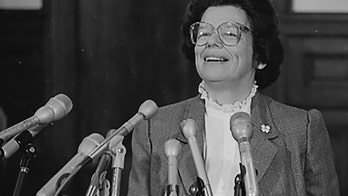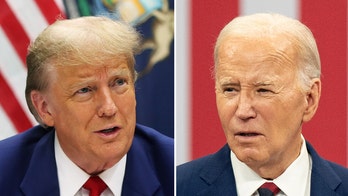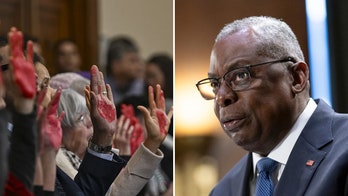Senate Democrats huddled behind closed doors for one hour on Thursday trying to figure out what to do about the expiring Bush tax cuts. With no consensus emerging, Majority Leader Harry Reid, D-Nev., decided to postpone a vote until after the election.
"Democrats believe we must permanently extend tax cuts for the middle-class before they expire at the end of the year, and we will.," Reid spkesman Jim Manley said in a written statement that blamed the GOP for the delay. "Democrats will not allow families in Nevada and across the country to suffer or be held hostage by Republicans who would rather give tax giveaways to millionaires and corporations that ship jobs overseas. We will come back in November and stay in session as long as it takes to get this done."
Sen Chris Dodd, D-CT, told reporters, "I think there are strong views being held. I, for one, subscribe to the notion that we ought to have a vote to extend the tax cuts for those that really need them and stop those for the ones who don't," Dodd said, but he quickly added, "There's a mixed view. Tax policy is not our strongest political argument with the national public. We know that. It's a divided caucus. That's not uncommon."
Several Democrats advocated for a delay, saying it is the one way to ensure politics does not enter into the equation. Republicans want to extend all of the tax cuts and are poised to pounce on any bill that falls short, as well as any member who does not support their position.
One senior Senate Democratic leadership aide told Fox that Republicans bear some of the blame, as well, "It's not as cut and dry as our people don't want to do them. We do. But people don't want to walk the plank if Republicans aren't going to play ball."
"It's just better that we wait. Nothing has to be done before the end of the year. It's clear, we're not for a $4 trillion tax loss. What we want is tax extensions for the middle class," said Sen. Dianne Feinstein, D-Calif., who said earlier that she could also support a compromise that woulid temporarily extend the top two tax brackets for two years.
Sen Bob Menendez, D-NJ. head of the Democrats' campaign effort, had no problem with a delay, either. "What's important is that the tax cuts get done by the end of the year and that the be effective for next year. That's what's important. Everything else is just semantics," Menendez concluded.
Sen. Mark Pryor, D-Ark, whose fellow Arkansan, Blanche Lincoln, is in an extremely tough fight for re-election against a former GOP congressman, said, "I think it's probably better to do it after, just because right now, everything is so political, and it's hard to get anything done without a lot of politics."
Lincoln, for her part, said she did not advocate any position in the closed door meeting but is fine with a delay. "I think it's reasonable and certainly important for the economy to be able to extend the low and middle income tax cuts. And I think if it's done responsibly, we can also extend the higher ones. But it has to be done responsibly," Lincoln said, adding, "I think it's abundantly clear to the American people that we're coming back after the election." When asked what "responsibly" meant, the senator demurred, "That's a good question. That's a good debate."
Sen Tom Carper, D-DE, said he wants a vote now, but he is willing to wait if it will help the more vulnerable members of his caucus. "I'm ready to vote now. But I think we should consider the golden rule, and that is to treat other people the way we would want to be treated, and that includes our colleagues."
Sen Patty Murray, D-Wash, among those vulnerable Democrats this cycle, blew by reporters saying only, "I want (tax cuts) done by the end of the year."
Democrats appear to be setting aside nearly a month or more for a lame duck session. Sen Byron Dorgan, D-ND, said Democrats are poised to return for "most of the month of December," and Sen. Carl Levin, D-Mich., added that one legislative week in November is now also on the calendar.




